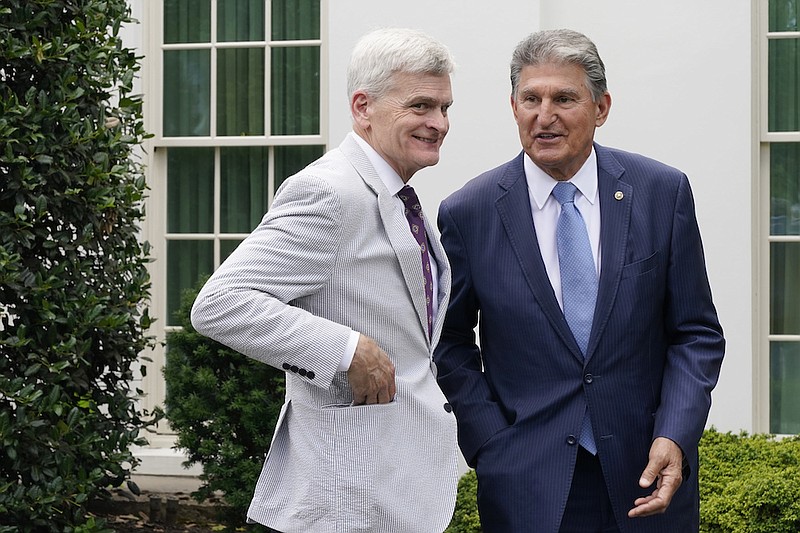ATLANTA - When I tell people that I cover politics for a living, the response I almost always hear is that people want Congress, or the Legislature, or fill-in-the-blank-government-entity to "put politics aside and solve problems."
"Why can't they just do that?" people want to know.
For a perfect example of why it's harder and harder to "just do that," especially in Washington, look for a minute at the For the People Act that Democrats tried to move through the Senate.
The federal elections and campaign overhaul started life in 2019 as a 706-page message bill, meaning a best-case-scenario, in-a-perfect-world proposal. It wasn't designed to pass, so much as to illustrate the values Democrats hold when it comes to campaigns and elections.
As usually happens, after an even larger proposal came forward in 2021, someone, in this case Sen. Joe Manchin, put forward a trimmed down concept that the Democrat said he could sell to his voters at home in West Virginia.
Georgia's U.S. Sen. Raphael Warnock told NBC News he thought Manchin's overall compromise was "significant."
Stacey Abrams, who has become a national leader on voting rights, called Manchin's concepts "a vital first step," adding that it was "absolutely" the kind of compromise she could support.
Abrams never said she would support only the Manchin proposal, or that she would stop fighting for more. But within hours fellow Democrats and voting rights groups were on Abrams, pushing her to say Manchin's proposal was not nearly enough.
While Democrats were balking at Abrams from the left, Republican campaign operatives started circulating years-old Warnock statements, when he equated state voter ID cards to a poll tax. The Republican National Committee accused Warnock of flip-flopping.
Shot down from the start, Manchin's idea never got off the ground. And Republicans in the Senate blocked the larger bill, calling it a partisan power grab.
But the entire episode showed how few incentives for compromise exist in modern politics, and how many incentives there are for elected officials to simply dig in their heels.
Very few voices in the political process today whisper in the ear of a politician, "Put politics aside and solve the problem." But a handful of leaders do it anyway.
Every one of the most important legislative achievements in Congress has been the result of some kind of compromise, including from Georgians, from education to health care to military bases to nuclear nonproliferation.
Johnny Isakson was a known compromiser. And so was Sam Nunn. Max Cleland would do any deal he thought would put veterans or active duty military personnel on better footing, even if the idea started with Republicans, which they sometimes did.
As governor, one of Nathan Deal's great achievements was criminal justice reform, forged with the steady input of Democrats. And Brian Kemp might tell you that repealing the citizens' arrest statute from 1885 ranks up at the top for him, not despite the support of Democrats, but because of it.
Over the next week, members of Congress are working to negotiate compromises on everything from police reform to voting rights to a massive infrastructure package.
If you want progress on any of those issues before the next presidential election, don't fall for the partisan talking points or the fundraising appeals.
Pick up your phone and make the case to the ones who need to hear it.
"Put politics aside and solve the problem," you can tell them.
If we keep punishing leaders for simply being open to compromise, we'll keep the partisan, brittle Congress we have and the dysfunctional government we deserve.
Atlanta Journal-Constitution
